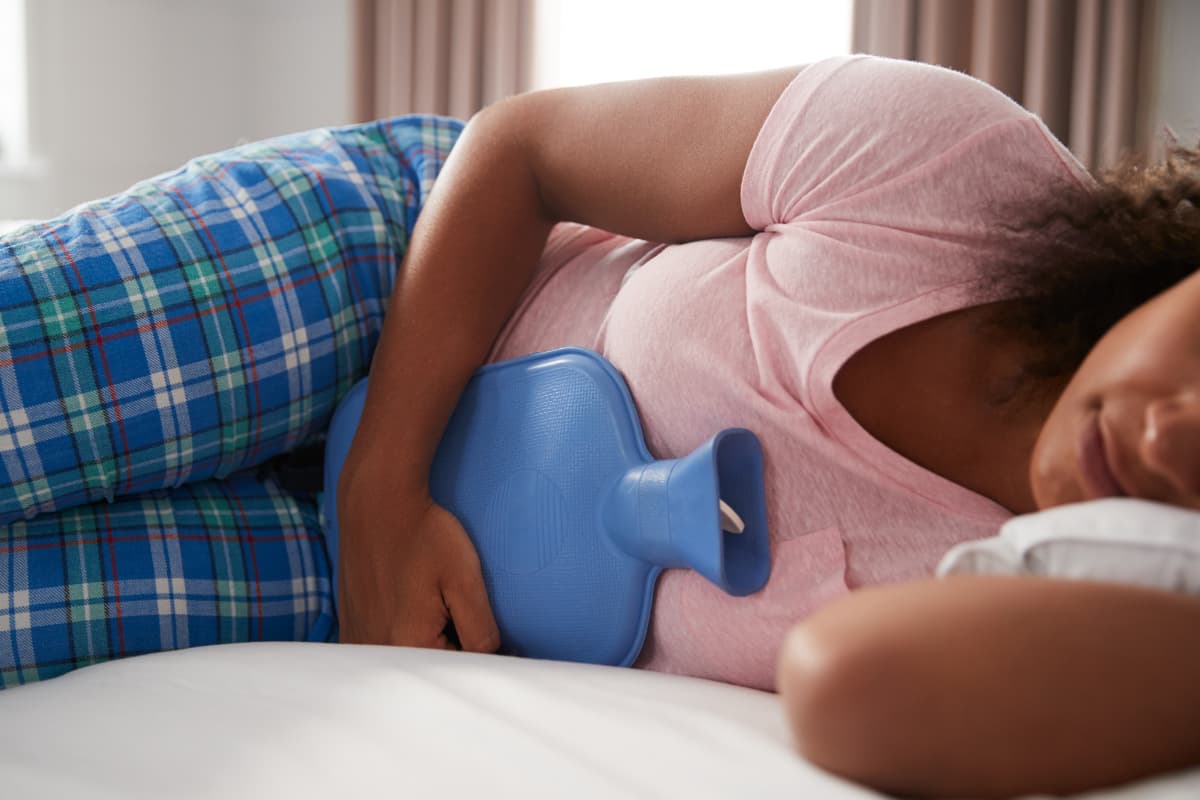13 Unusual Menopause Symptoms

You may be surprised to learn that there are 34 symptoms of menopause. Some are well-known, like hot flashes, sleep disturbance, and mood swings, while others are a bit more unusual and experienced by fewer women. Here we will delve into 13 surprising symptoms of menopause.
1. Burning Mouth
Hormonal changes can trigger something known as Burning Mouth Syndrome (BMS.) Research shows a high incidence in women 40-60 years old, suggesting a correlation with a decrease in female sex hormones. BMS can cause burning pain in the tip and sides of the tongue, lips, and palate.
Quick Tip
Your doctor can prescribe certain medications if your BMS is severe. Oral rinses and saliva replacement products might also be of benefit.
2. Electric Shock Sensation
Some women experience brief sensations like electric shocks in their head and skin during menopause. Sometimes these shocks precede a hot flash. It’s not yet well-understood why this occurs, but one theory is that low estrogen, which affects the nervous system, is responsible.
Quick Tip
There isn’t any specific treatment for these electric shock sensations, but stress reduction might help. Try to get enough sleep, eat well, and stay physically active.
3. Tingling Extremities
Experiencing a pins and needles sensation (paresthesia) in your hands and feet can happen in menopause. The culprit behind it is, yet again, low estrogen. Low estrogen causes deregulation in the nervous system that can lead to hand and foot tingles. You may also notice your hands and feet are colder than usual.
Quick Tip
Paresthesia caused by hormone fluctuations is not something to worry about. However, other more serious medical conditions can also cause similar symptoms. Let your healthcare clinician know if you consistently have tingling extremities or are experiencing pain.
4. Dizzy Spells
Up to 25% of women in perimenopause and menopause experience occasional dizziness. Scientists haven’t been able to determine the exact mechanism responsible for this symptom, although they have found that women with anxiety and depression may be more likely to experience dizzy spells in menopause.
Quick Tip
Stay hydrated and well-nourished. Hormone therapy has also been shown to alleviate dizziness associated with menopause.
5. Itchy Skin
Unfortunately, estrogen plays several roles in helping our skin stay healthy. It helps keep our skin hydrated with natural oils, stimulates collagen production, and protects our skin barrier. Therefore, when estrogen drops in menopause, we lose all those marvelous skin benefits that estrogen had previously been providing us.
Research suggests that up to thirty-two percent of women experience an increase in skin sensitivity during menopause. Dry, compromised skin tends to be itchy and irritated.
Quick Tip
Moisturizer may become your new best friend. Over-the-counter anti-itch creams and hormone therapy can also alleviate this irritating symptom. Avoid hot showers and products that are drying to the skin. Find more recommendations for managing sensitive skin here.
6. Thinning Hair
Loss of estrogen and progesterone triggers a rise in androgens (male sex hormones) concentration. Higher androgen levels can cause androgen-related hair loss. Most menopausal women will experience slower hair growth, thinner hair, and some hair loss. Unfairly, this hormonal imbalance can also cause stray hairs to pop up on your chin or other areas. Also known as “witch hairs.”
Quick Tip
Hair loss can be mediated with excellent nutrition, good sleep, and stress management. New brands are designing haircare products specifically for women 40+ to help with thinning hair. You can check out our product review here. Your dermatologist can also offer effective treatments to help preserve hair and assist hair growth.
7. Brittle Nails
The same dehydration that occurs in your skin because of low estrogen also occurs in your nails. This can lead to weak and brittle nails.
Quick Tip
Baby your nails. Give them plenty of moisture, and try not to expose them to hot water, detergents, and other physical irritants. Quitting smoking can improve your nail health dramatically, so if you smoke, here’s one more reason to quit.
8. Body Odor
When your hormones change as dramatically as they do in menopause, your entire body chemistry shifts. Increases in testosterone and cortisol cause a stronger body odor that differs from what you might be used to.
Also, menopausal women tend to sweat more. More sweat means more opportunities for odor-causing bacteria to grow.
Quick Tip
Manage your hot flashes the best you can, bathe regularly, and think about sticking with natural fabrics that don’t hold onto odors as much as synthetics do. For night sweats, new high-tech pajamas help wick away moisture and keep you cool and dry.
9. Metallic Taste
Hormone changes of menopause can affect saliva production, which then affects taste bud function. Some women report a metallic taste in their mouth that can negatively impact their enjoyment of foods.
Quick Tip
Stay hydrated, practice excellent dental hygiene, and try chewing sugar-free gum.
10. Gum Disease
There are several factors that go into your increased risk of periodontal disease in menopause. Low saliva production, loss of bone density, and thinning gum tissue can all contribute.
These changes increase your risk of developing receding gums and inflammatory conditions of the gums.
Quick Tip
Make sure you’re keeping plaque levels low by visiting your dentist regularly, flossing daily, and brushing with a fluoride-containing toothpaste. HT has also been shown to help prevent gum disease in menopause.
11. New Allergies
Changes in estrogen and progesterone levels may make you more susceptible to inflammation and allergies. It is not uncommon for women to experience worsening hay fever, asthma, and allergies in asthma.
Quick Tip
Try to determine what your allergy triggers are and avoid them as much as possible. Talk to your healthcare clinician about possible pharmaceutical treatments you could use to improve your symptoms. Make sure your vitamin D levels are where they should be. Low vitamin D, common in menopausal women, can worsen allergies.
12. Digestive Problems
Low estrogen and progesterone can cause your food to move more slowly through your digestive tract. This can cause nausea, vomiting, diarrhea, bloating, and constipation.
Quick Tip
Make sure you’re consuming adequate fluids and plenty of fiber to help speed the passage of waste products through your system. Getting enough magnesium through diet and/or supplementation can also relieve gastrointestinal symptoms of menopause as can regular exercise.
13. Panic Attacks
It’s well-documented that women experience more panic attacks in postmenopause. It’s not wholly understood what causes this increase, although low progesterone and estrogen, elevated cortisol, and stress might all play a role.
Quick Tip
Stress reduction through mindfulness activities and exercise can support your mental well-being during menopause, as can a nutrient-rich, well-balanced diet. Talk to your healthcare clinician about HT and anti-anxiety medication if lifestyle changes alone aren’t adequately managing your panic attacks.
Conclusion
Menopause brings with it a multitude of, at times, surprising symptoms. Most can be attributed to hormone shifts, but the good news is that many symptoms can be improved through lifestyle adjustments and excellent self-care.
Don’t hesitate to talk to your healthcare clinician about any concerning symptoms. There are plenty of safe and effective medical options for improving your quality of life in your menopause years, and it’s important to ask for support if you need it.
Looking for more expert support on hormone therapy? Download Midday from the App Store where you’ll find a tool to help you understand whether hormone therapy is right for you.
Jennifer Turkyilmaz, RN, BSN, is a medical writer who worked for many years in women’s health as a high-risk pregnancy nurse. She is also a newly menopausal woman who wishes she had known more about what to expect before it happened to her.
Sign up for more unique women’s health content
By submitting this form, you agree to the Lisa Health Privacy Policy and Terms of Use


